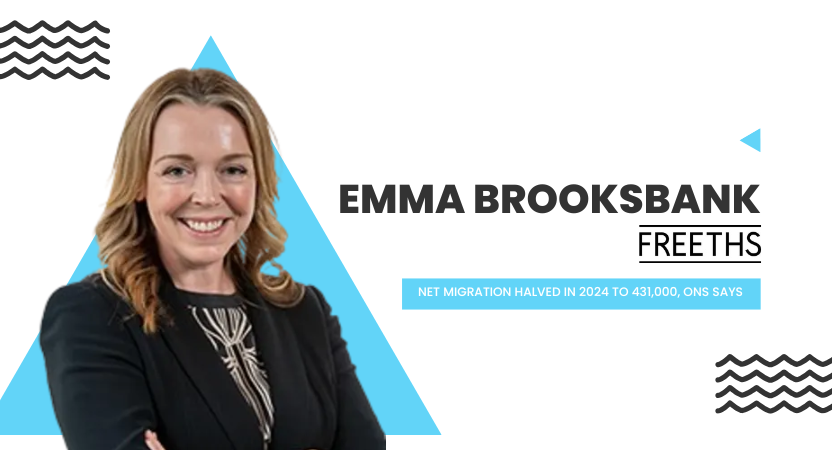New estimates showed 431,000 more people arrived in the UK than left over the 12-month period, compared to 860,000 a year earlier - the largest numerical drop on record.
Emma Brooksbank, partner and immigration specialist at national law firm Freeths, says:
“The sharp drop in net migration reported this week is largely due to the high numbers of students who entered the UK immediately after the pandemic now leaving having completed their course and drops in dependant visa holders entering the UK following changes to the immigration rules last year.
The drop in students and dependant visa holders will reduce the available workforce in sectors such as hospitality, leisure, care and retail.
The proposals announced in the recent White Paper will worsen labour shortages as the skill threshold for sponsorship under the immigration system is expected to increase, and costs are expected to rise.
HR professionals will need to review their current workforce to assess whether they employ current visa holders, and whether there will be visa switching applications in the coming months and years. If these applications can be brought forward, they should be.
They will also need to review their workforce strategy. If they can make recruitment decisions before any further changes are implemented, they could consider this.
If they anticipate severe labour shortages, they could contact any trade union or membership organisation which they may be affiliated with, to put the case for occupations in their industry to be included on the proposed temporary shortage occupation list which would then allow for recruit from overseas.”






